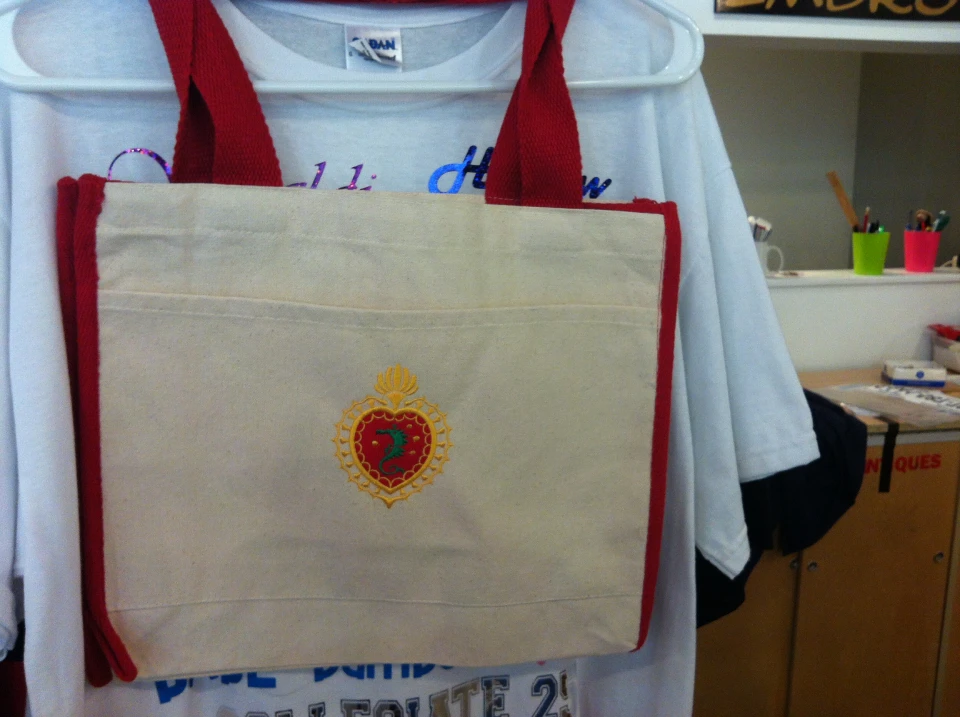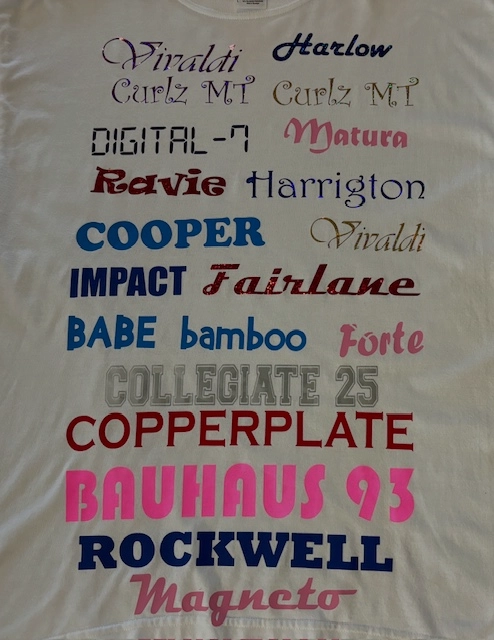The Art of Customized Embroidery: Opening the Keys to Creating One-of-a-kind and Memorable Designs
The keys to developing custom-made embroidery designs that captivate the eye and leave a long-term impact lie in a fragile balance of technique, creative thinking, and focus to detail. As we delve right into the world of custom needlework, we discover the nuanced interplay in between thread selection, sew complexity, and layout customization that elevates a plain garment to a job of art.
Choosing the Right Needlework Threads
When choosing needlework threads, what crucial factors should you take into consideration to ensure the finest outcomes for your custom styles? The selection of embroidery string is essential in establishing the final result of your stitched design. Among the key considerations is the material of the string. Various materials such as cotton, polyester, rayon, and silk provide differing levels of shine, sturdiness, and structure. It is necessary to pick a string material that complements the fabric you are stitching on and lines up with the wanted look of the style.
Thicker threads can include dimension and texture to your layout, while finer threads are optimal for elaborate details and tiny text. Additionally, taking into consideration the shade fastness and washability of the thread is crucial to make certain that your personalized styles preserve their quality and vibrancy over time.
Exploring Various Stitch Techniques
To look into the world of 'Checking out Various Stitch Methods', one need to understand the intricacies and subtleties that each sewing method gives the art of embroidery. Various stitch methods not just add aesthetic rate of interest but additionally contribute to the overall texture and dimension of the layout. One preferred stitch method is the satin stitch, which includes carefully jam-packed parallel stitches to develop a smooth and shiny surface area, ideal for completing forms and producing strong lays out.
On the other hand, the backstitch is a versatile technique frequently made use of for describing and including great details. It involves sewing backwards to produce a strong line of needlework. In addition, the French knot stitch includes a tactile aspect to styles, excellent for creating textured accents like flower centers or ornamental touches.
Discovering various stitch strategies allows embroiderers to play with light, shadow, and depth within their styles, raising the aesthetic allure and imaginative quality of their embroidery projects. By grasping different sewing approaches, one can open countless possibilities for creating unique and memorable custom-made needlework items.
Incorporating Personalized Layout Components
Having explored the complexities of various stitch strategies such as the satin stitch, backstitch, and French knot, the emphasis now moves towards including tailored style components in personalized needlework projects. Personalized design elements play a vital duty in making needlework jobs genuinely distinct and unforgettable. One means to incorporate customization is by including initials, names, or considerable dates to the design. This not just includes an individualized touch however also enhances the nostalgic worth of the embroidery piece.
One more way to include individualized layout elements is by consisting of icons or themes that hold special meaning to the recipient or mirror their rate of interests and personality. Including a preferred blossom, animal, or hobby-related sign can make the needlework design much more significant and tailored. Additionally, picking colors that resonate with the recipient or straighten with the intended style can better improve the customization of the embroidery task.
Grasping the Art of Shade Coordination

One trick facet of shade control is understanding shade theory. This includes recognizing how various shades communicate with each various other, the emotions they share, and how they can be combined to produce aesthetically appealing styles. By using color theory concepts, embroiderers can develop harmonious color schemes that enhance the general appearance of the design.
In addition, paying attention to comparison is essential in shade control. Utilizing contrasting colors can assist particular elements of the design pop, enhance readability, and create a visually vibrant embroidery item. By mastering the art of color control, embroiderers can elevate their designs and create unforgettable items that resonate with clients and audiences alike.
Enhancing Structure With Advanced Needlework Stitches

French knots, as an example, are perfect for adding little, elevated dots to your design, mimicking the look of grains or developing a textured surface. Bullion knots, on the various other hand, can be used to create twisted, ropelike custom tuxedo jacket components that add a luxurious feel to the needlework. Seed stitching entails tiny, scattered stitches that can fill in areas with a multicolor structure, while turkey work creates fluffy, dimensional accents evocative animal fur or foliage. Explore these advanced embroidery stitches permits you to push the limits of traditional embroidery and develop absolutely unique and visually appealing structures in your layouts.
Final Thought
To conclude, the art of customized embroidery entails a mix of choosing the right strings, checking out different stitch methods, integrating customized design elements, understanding color control, and boosting structure with advanced stitches. By recognizing and executing these crucial elements, embroiderers can produce unique and memorable designs that showcase their creative thinking and skill. Embroidery lovers can unlock the keys to producing attractive and bespoke items that stick out and leave an enduring impression.